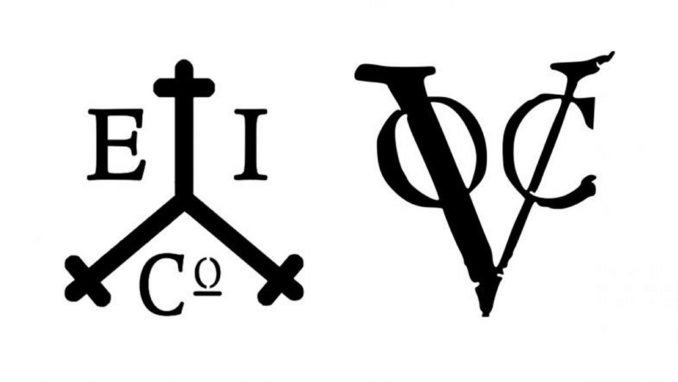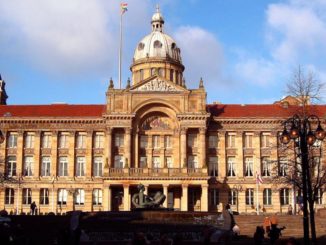
Public Domain
It’s hard to make a pro-corruption argument. This might seem like a banal point to make, but it goes a long way to explaining its role as a rhetorical tool to delegitimise incumbent elites. Any system increases the power of a subset of the population – thus creating an aristocracy, which might be either in line with natural aristocratic tendencies, or an artificial creation made by fiat. Therefore a common tactic to be aware of; particularly in this new world of information warfare and astro-turfed revolutions, is the use of the term “corruption” to do most of the work necessary to convince people that the corrupt oligarchs (read: current aristocrats), need to be removed, and replaced with their champions of the people, experts, civil servants, meritocratic representatives or whatever else they might be sold as (read: their aristocrats).
If a prominent firm or aristocrat is given sole rights to import a particular commodity, or given a monopoly over trade with a particular region of the world – is that corrupt? Most would probably say yes, but it is a frequent feature of trade historically, and usually discussed without this moral dimension. In discussions on the history of these topics it has been seen in the cold light of either political or economic necessity. When pursued by the various national East India Companies, as well as the West Africa companies, and others; a monopoly may have been necessary to reduce risk and thus make the enterprise sufficiently profitable and attractive to generate capital. The risk of total asset loss was so severe that even despite the significant resource availability and autonomy of these East India Companies, they were unable to secure total dominance – as they still competed with each other East India Company. Had the Dutch East India Company had to face even just two or three English East India Companies with either outright force or predatory business practices; they would be unlikely to help one another, and thus leave one another to fall one by one. It’s even worse than that on the domestic side, because they would undercut one-another in prices, and thus diminish the profitability of the goods overall. Between these two pressures, they would have to eventually simply buy from the Dutch East India Company instead. Based on the effects that economic dependence on Chinese trade had on British foreign policy (sparking the Opium Wars), and the actual historical examples of the Anglo-Dutch Wars, we would be faced with a series of wars wherein England occupies a much more disadvantageous position thanks to less access to ships and a shipbuilding industry (after all, if there is little peacetime need for it, what would sustain it outside of wartime?). All the while, access to foreign commodities such as tea and spices would be sporadic, and pricier when available. Was the granting of these monopolies to certain aristocrats a matter of corruption then, or prudent policy in the national interest? If one were to ask domestic producers and aristocrats with little investment in the new companies, it would most certainly be still considered a matter of corruption.
A more contemporary examples then: was the privilege that seems to have been given to Russian or Russian-affiliated aristocrats in Armenia corrupt? Many seem to have thought so, based on polls, street demonstrations, and the like around the time of the 2018 revolution (if we trust such metrics). It should be said immediately that there are more facets to the corruption accusations than that single point (and this caveat is necessary because it is more contemporary), however this is one of the points which was seized upon most diligently by the revolutionary government. Russian influence was purged rather ruthlessly, but fast-forward two years and Armenia finds itself in the midst of a war which was entirely predictable, but one which they were woefully underprepared for, and their only ally – Russia, sits on the sidelines. Perhaps all that ‘corruption’ served a purpose after all…
More than that even, much of the ‘corrupt’ government’s claim to legitimacy in prior years had been the preservation of their perilous position. In the west this has been portrayed as a flimsy excuse to preserve their power and position. Recent events seem to show that they were entirely correct, and we were entirely wrong. Who is the corrupt party in this formulation then?
Only after laying out these examples does it seem appropriate to define corruption, because many of us have an inherent sense of what corruption is – which I wanted to prick at before discussing it in detail. According to a quick google, the following two definitions are most appropriate here:
- dishonest or fraudulent conduct by those in power, typically involving bribery.
- the action or effect of making someone or something morally depraved.
Transparency International gives a slightly different definition:
- We define corruption as the abuse of entrusted power for private gain.
Between these three definitions, we get the sense that corruption is the profaning of sacred power by using it for private gain. This is not a terrible definition, we can, I’m sure, all agree that Dick Cheney personally profiting from the Iraq War was indeed corrupt, as would be supported by the definition. But what about the repeal of the Corn Laws? The anti-corn law league was immeasurably better funded than it’s pro-corn law counterpart, and it was rather transparently funded so that the factory owners could lower the wages of their workers; hardly an altruistic aim, despite all the high-minded rhetoric. Was the eventual success which they achieved, corrupt? By this definition, yes insofar as the better funded party won out (despite the theoretically pro-corn law party being in government at the time – indeed the issue split the party), but we tend not to see it that way. Perhaps it is simply too far in the past. What about the overruling of a referendum result through legal challenge? It’s not quite buying a politician, but it’s often the next best way of buying policy. Desegregation, and same-sex marriage were both pushed through this way, but these two points are often considered some of the most significant achievements of Liberal Democracy – to call them products of corruption would be contentious to say the least. But these weren’t for personal gain, right? Not financially, certainly, but in terms of non-financial profit, perhaps.
Let us emphasise the private versus public gain side of the equation then, dropping the moralist implications, and the financial element. Already we run into problems defining what this public good might be, and how to deduce it – as it is one of the core questions and divisions of the Enlightenment. Instead, let me sidestep that consideration for a moment, to instead talk about what is definitively not part of the public good:
- The good of an individual at the expense of the rest
- The good of an organisation or small cadre at the expense of the rest
- The good of a faction or segment of the population at the expense of the rest
- The good of the present populace at the expense of the future populace
Obtaining one of these conditions tends to be the goal of enterprises which encourage corruption. Points 3. and 4. however, are tricky because they bring a lot more to mind than stuffed brown envelopes and undue favours. Our general Pluralist view of modern Liberal Democracies usually says that this is a good thing; to have many disparate pressure and interest groups vying for influence. And despite the fact that they often come armed with either cash or near-cash assets for politicians to enjoy (that is to say, if a politician planned to use funds for adverts or exposure to voters, then being given those services is just as good as the cash), we tend not to view them as corrupt or corrupting entities. Unless of course it’s the other political wing’s interest groups. And again we run into the spectre of corruption as a rhetorical device.
The full implications of the above statements are much deeper however, as they imply that even an idealised version of modern Liberal Democracy is corrupt. Mostly only the naive and the rhetoricians maintain that their program would be better for all, rather than merely their own chosen groups. At this point the criticism may be rightly raised that we have moved on from corruption, and are instead onto the topic of determining what is within the national interest, but this concept is, I would suggest, deeply tied to that of corruption – as it is to act against this national interest for the sake of private interests.
If then, we are to insist on continuing to use corruption as a meaningful concept, it must be to distinguish between particular benefits, or general benefit: those policies that empower only a fraction at the expense of the rest, versus those that – perhaps even disproportionately benefiting some, nonetheless grant general benefits either overall, or in the long term. If we also accept the findings of the Elitist School, and in particular, the Iron Law of Oligarchy, then this also means that accepting the privileged positions of aristocrats is necessary, but must be aligned with the national interest (rather than parasitic). This is clearly not an obvious picture to parse however, as demonstrated by the aforementioned examples of the Armenian Revolution in 2018, or the merchants and investors of the East India Company, because in both cases, the privileges served vital strategic interests which either would have, or did impoverish the nation at large by their disempowerment. Most other cases are more murky however. Did the abolishment of the Corn Laws and thus the disempowerment of the landed aristocracy in favour of the burgeoning merchant, financial, and industrial aristocracy – help or hurt Britain’s interests? It’s a mixed picture, and while I would personally say that it did more damage than good in the long term, I will readily admit that this is a difficult case to make. In the present it is even more difficult; particularly when factionalism is rife which encourages a mindset of wanting to raise our own and tear down those of the political opposition. But under such conditions, perhaps even the basest claims of awarding top jobs to loyalists alone to ensure loyalty and governmental coherence is valid, in which case all talk of corruption would be moot.
Only when we have solved this problem of ensuring that intentions are rightly guided – can we begin to interpret and weigh the conflicting needs of the nation. Before a national need can be established, there needs to be an unbiased or correctly biased (as in biased towards the good of the nation) entity which can produce these judgements reliably, rather than coincidentally. Athens stumbled into the fleet they used to win the existentially vital battle of Salamis. We probably shouldn’t, as a matter of course, rely on such unlikely fortune to obtain good policy.
© Rupert August 2021
The Goodnight Vienna Audio file
Audio Player



